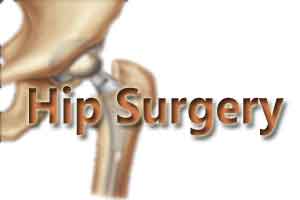- Home
- Editorial
- News
- Practice Guidelines
- Anesthesiology Guidelines
- Cancer Guidelines
- Cardiac Sciences Guidelines
- Critical Care Guidelines
- Dentistry Guidelines
- Dermatology Guidelines
- Diabetes and Endo Guidelines
- Diagnostics Guidelines
- ENT Guidelines
- Featured Practice Guidelines
- Gastroenterology Guidelines
- Geriatrics Guidelines
- Medicine Guidelines
- Nephrology Guidelines
- Neurosciences Guidelines
- Obs and Gynae Guidelines
- Ophthalmology Guidelines
- Orthopaedics Guidelines
- Paediatrics Guidelines
- Psychiatry Guidelines
- Pulmonology Guidelines
- Radiology Guidelines
- Surgery Guidelines
- Urology Guidelines
Dual mobility hip implant has less risk of dislocation

New York: The demand for hip replacement surgery is abruptly increasing across the globe. According to the findings presented at the annual meeting of American Association of Hip and Knee Surgeons, hip replacement surgery is highly successful in relieving pain, restoring mobility and improving quality of life.
Almost all such surgical procedures are accompanied by certain complications with dislocation being the most common problem. The risk of dislocation is higher in patients who have had a second hip replacement, known as revision surgery. Some people need revision surgery many years after their first hip replacement when the original implant wears out. Hip instability after joint replacement is another reason a patient might need a revision surgery.
Read Also: New Implant reduces rate of revision surgery in hip replacement
The researchers have developed a newer type of artificial hip known as a "modular dual mobility" implant which could be a good option for patients who need a revision surgery.
Modular dual mobility implants provide an additional bearing surface compared to a traditional implant. With the dual mobility hip, a large polyethylene plastic head fits inside a polished metal hip socket component, and an additional smaller metal or ceramic head is snap-fit within the polyethylene head.
"Although the concept of dual mobility was originally developed in France in the 1970s, the technology is relatively new in the United States," says Dr. Westrich, director of research of the Adult Reconstruction and Joint Replacement Service at HSS. "Our study found that the newer technology with modular dual mobility components offered increased stability, lowering the risk of dislocation, without compromising hip range of motion in patients having a revision surgery."
"Dual mobility" refers to the bearing surface of the implant - where the joint surfaces come together to support one's body weight. A hip replacement implant is a ball-in-socket mechanism, designed to simulate a human hip joint. Typical components include a stem that inserts into the femur (thigh bone), a ball that replaces the round head of the thigh bone, and a shell that lines the hip socket.
Dr. Geoffrey Westrich and colleagues at Hospital for Special Surgery included 370 patients who underwent revision hip replacement with the dual mobility implant between April 2011 and April 2017. The average patient age at the time of surgery was 65.8 years. Clinical, radiographic and patient reported-outcome information was collected.
Read Also: Single stage hip replacement better than two-stage procedure
Patients needed to be seen for follow-up for at least two years after their surgery in order to be included in the final report, and the average follow-up was 3.3 years.
"At the latest follow-up, we found that surgery with the dual mobility implant resulted in a very low rate of instability for the revision patients, namely 2.9 percent, with good functional improvement and a low rate of reoperation," Dr. Westrich noted. "While longer-term follow-up is needed to fully assess the newer device, in our study there was clearly a benefit provided by the dual mobility implant in the first few years following revision surgery."
More than 330,000 procedures are performed each year in the United States, and that number is expected to almost double by the year 2030.

Disclaimer: This site is primarily intended for healthcare professionals. Any content/information on this website does not replace the advice of medical and/or health professionals and should not be construed as medical/diagnostic advice/endorsement or prescription. Use of this site is subject to our terms of use, privacy policy, advertisement policy. © 2020 Minerva Medical Treatment Pvt Ltd